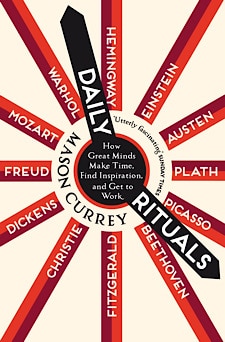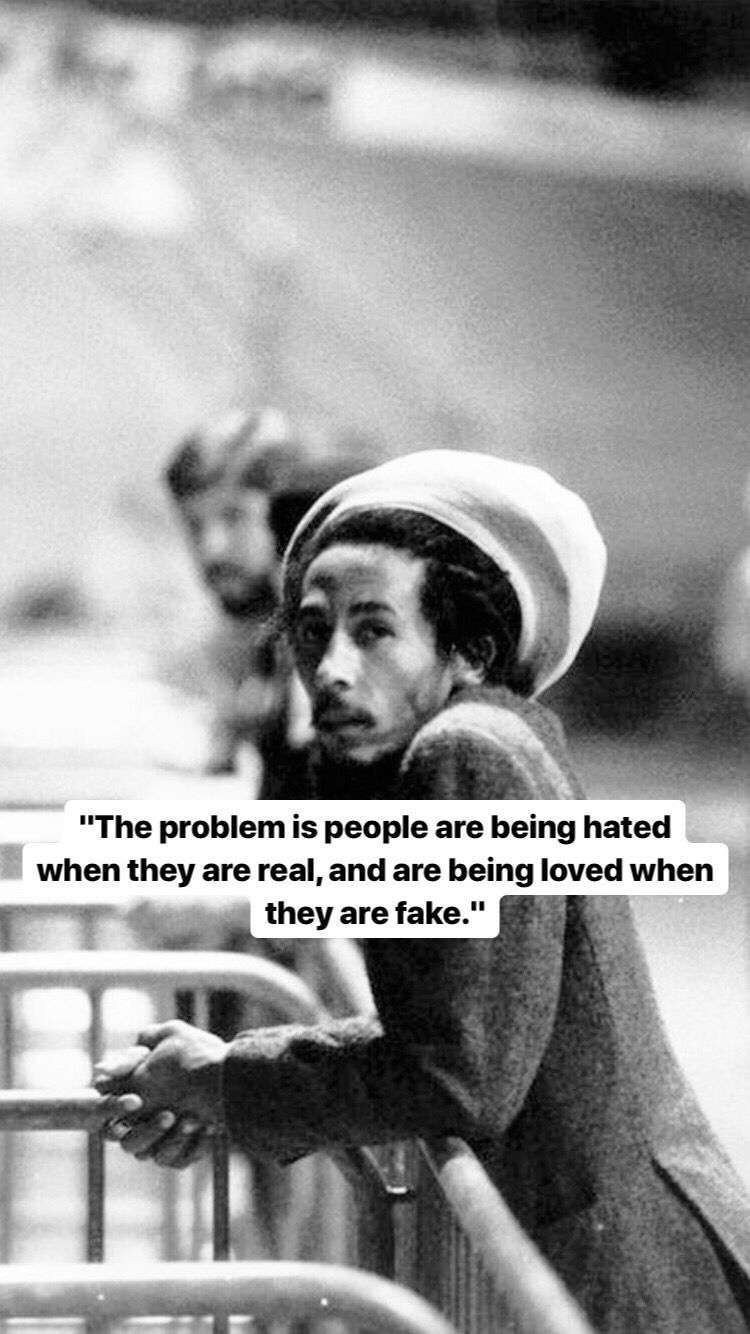“Eagerly anticipating some future event, passionately imagining something you desire, looking forward to some happy scenario—as pleasurable as these activities might seem, they ruin your chance at happiness here and now. Locate that yearning for more, better, someday and see it for what it is: the enemy of your contentment. Choose it or your happiness. As Epictetus says, the two are not compatible.”
Ryan Holiday, The Daily Stoic (Page 57)
Archives
“It is quite impossible to unite happiness with a yearning for what we don’t have. Happiness has all that it wants, and resembling the well-fed, there shouldn’t be hunger or thirst.”
Epictetus, Discourses, via The Daily Stoic (Page 57)
Russell Brand on Meditation, Prayer, and Intention [Excerpt]
Excerpt: In this excerpt from: Recovery, Russell Brand talks about the power of meditation, what prayer is for him, and details how he prays. Enjoy!
Read More »Russell Brand on Meditation, Prayer, and Intention [Excerpt]
“‘Sought’ is from the verb to seek; I have always been looking for something. I see that now, for as long as I can recall I harboured fantasies of how some object or experience would heal me, would make me whole. Sometimes before Christmas I would be so euphoric at the prospect of the following day’s gifts that I’d vibrate until it felt like I might shape-shift. What was I imagining the millennium Falcon or whatever it was would bring? What was the inherent drive that was so fiercely engaged? I always felt these artefacts would bring completion. It was like I was born with the yearning to be whole and continually felt that each new object or encounter, particularly if enthusiastically heralded, would bring redemption.”
Russell Brand, Recovery (Page 194)
Daily Rituals [Book]
Book Overview: How is a novel written? A masterpiece painted? A symphony composed? Benjamin Franklin took daily naked air baths and Toulouse-Lautrec pained in brothels. Edith Sitwell worked in bed, and George Gershwin composed at the piano in pyjamas. Freud worked sixteen hours a day, but Gertrude Stein could never write for more than thirty minutes, and F. Scott Fitzgerald wrote in gin-fuelled bursts—he believed alcohol was essential to his creative process. Here are the working routines of more than a hundred and sixty of the greatest philosophers, writers, composers and artists ever to have lived, who, whether by amphetamines or alcohol, headstands or boxing, made time and got to work.
Post(s) Inspired by this Book:
- 13 Intriguing Quotes from Daily Rituals and How Great Creators—Create
- Gerhard Richter Quote on Ideas and How They Won’t Come to You—You Have To Find Them (Beyond the Quote Day 413)
- Henry Miller Quote on Not Draining The Reservoir and Finishing Before You’re Done (Beyond the Quote Day 418)
- Haruki Murakami Quote on Routine and How It’s A Form Of Mesmerism (Beyond the Quote Day 420)
- John Updike Quote on Writing and How Waiting For Inspiration Can Backfire (Beyond the Quote Day 421)
- Willa Cather Quote on Writing and Making It An Adventure Rather Than A Chore (Beyond the Quote Day 423)
“If someone asks you how to write your name, would you bark out each letter? And if they get angry, would you then return the anger? Wouldn’t you rather gently spell out each letter for them? So then, remember in life that your duties are the sum of individual acts. Pay attention to each of these as you do your duty… just methodically complete your task.”
Marcus Aurelius, Meditations, via The Daily Stoic (Page 56)
“We don’t tolerate typos in commercial products, and the market has the same feeling about design that’s lazy or out of place. Graphic design represents an emotional commitment to the work. Long before we read the words or understand the images, we see the layout. Kerning and color and weight and form arrive in our brains before we have decided what the words on the page actually mean. You wouldn’t wear a clown suit to a job interview, and yet people dress up their ideas in clown suits all the time.”
Seth Godin, Blog
“If you never copy best practices, you’ll have to repeat all the mistakes yourself. If you only copy best practices, you’ll always be one step behind the leaders.”
James Clear, Blog
Francois de La Rouchefoucauld Quote on Absence and How It’s The Ultimate Relationship Test
“Absence diminishes mediocre passions and increases great ones, as the wind extinguishes candles and fans fires.”
Francois de La Rochefoucauld
Beyond the Quote (Day 411)
Without absence it’s hard to tell what’s a priority and what’s not. Because if there’s no absence, then there’s immersion and if we’re immersed in something, then that’s all we know—we have nothing to contrast it against. If we were only ever taught math, how might we know if we liked another subject better? If we only ever spent time with certain people, how could we know what it would be like to spend time with others? Contrast is what provides us with the opportunity to compare. Without it, we have only the option we have.
Read More »Francois de La Rouchefoucauld Quote on Absence and How It’s The Ultimate Relationship Test“I am part of the sun as my eye is part of me. That I am part of the earth my feet know perfectly, and my blood is part of the sea. There is not any of me that is alone and absolute except my mind, and we shall find that the mind has no existence by itself, it is only the glitter of the sun on the surfaces of the water.”
D. H. Lawrence, Sunbeams (Page 36)
“Clear your mind and get a hold on yourself and, as when awakened from sleep and realizing it was only a bad dream upsetting you, wake up and see that what’s there is just like those dreams.”
Marcus Aurelius, Meditations, via The Daily Stoic (Page 55)
Stop Associating Being A Good Person With How Much You’re Willing To Suffer In Silence
“Can we please stop associating being a good person with how much you’re willing to suffer in silence for other people? You can be a kind person and still say, ‘No, I don’t have the time/energy to help you with that.’ You can be a kind person and still say, ‘This makes me uncomfortable, please stop.’ You can be a kind person and still say, ‘I disagree, and here’s why,’ you can be kind and still say, ‘I’m not okay with this.’ Being kind is about treating people with kindness and respect, not about being the human equivalent of a doormat.”
Unknown
Beyond the Quote (Day 409)
Nobody wants to be a doormat. Doormats have no boundaries. They get walked all over by anyone and everyone. They are used whether it’s morning or night; hot or cold; wet or dry; muddy or icy. Doormats suffer in silence for the convenience of all. They’ll never turn you away, disagree with the conditions of your shoes, say how they feel, or tell you it’s not an okay time. Being a doormat is not being a good person; being a doormat is demeaning to your person. Don’t be a doormat—be a door, instead.
Read More »Stop Associating Being A Good Person With How Much You’re Willing To Suffer In Silence“When you start to drink, wank, eat, spend, obsess [excessively] you have lost your connection to the great power within you, the great power in others, the great power around all things. There is something in you speaking to you and you don’t understand it because you’ve never learned its language. So we try to palm it off with porn and consuming but it is your spirit calling and it craves connection. Spend time alone, write, pray, meditate. This is where we learn the language.”
Russell Brand, Recovery (Page 134)
“You can’t think your way into acting better but you can act your way into thinking better.”
Russell Brand, Recovery (Page 160)
“Our relationships with people become the instantiations of negative attitudes to ourselves: I believe myself to be ugly; I behave in an ugly way; I then have relationships with others that confirm my belief. A self-perpetuating doctrine.”
Russell Brand, Recovery (Page 150)
John Cowper Powys Quote on The Past and How It’s Not Set In Stone, But Open To Interpretation
“The mistake we make is to turn upon our past with angry wholesale negation… The way of wisdom is to treat it airily, lightly, wantonly, and in a spirit of poetry; and above all to use its symbols, which are its spiritual essence, giving them a new connotation, a fresh meaning.”
John Cowper Powys, Sunbeams (Page 26)
Beyond the Quote (Day 408)
Not only do we try to deny (often angrily) the events of our past, but we often turn on our past as if it’s without any use at all. Like it just is what it is and any time spent looking back is wasteful. But, that’s not entirely true. While, yes, our past is composed of unalterable events, what it’s not composed of is unalterable interpretations. We are free to interpret the events of our past however we choose. But, when we believe that looking back isn’t worth our time—because we “aren’t going that way”—we miss the chance to update our interpretations and give the events of our past fresh meaning.
Read More »John Cowper Powys Quote on The Past and How It’s Not Set In Stone, But Open To Interpretation“Keep constant guard over your perceptions, for it is no small thing you are protecting, but your respect, trustworthiness and steadiness, peace of mind, freedom from pain and fear, in a word your freedom. For what would you sell these things?”
Epictetus, The Daily Stoic (Page 52)
Russell Brand Quote on Self-Image and How What We Justify Is What We Recommit To
“In justifying our misery we recommit to it.”
Russell Brand, Recovery (Page 101)
Beyond the Quote (Day 407)
There’s an expression in the performance world that nobody can outperform his/her own self-image. Meaning, how a person thinks they’ll end up performing is how they’ll most likely end up performing. Self-image becomes a self-fulfilling prophecy.
Read More »Russell Brand Quote on Self-Image and How What We Justify Is What We Recommit To“By forgiving the perpetrator, I release myself. I can revise the event. I can see it as something that gives me more compassion and understanding. I can let go of it. There is no benefit to establishing an imaginary judicial system in my own mind where I carry out punishments to people who have wronged me. By letting go of this long-held inner drama I become a little more liberated and useful. In essence it’s bad that it happened but it’s worse that I allow myself to be affected by it now. I cannot control the past but I can control the present through forgiveness.”
Russell Brand, Recovery (Page 134)
![Russell Brand on Meditation, Prayer, and Intention [Excerpt]](https://movemequotes.com/wp-content/uploads/2021/02/Russell-Brand-930x620.jpg)

